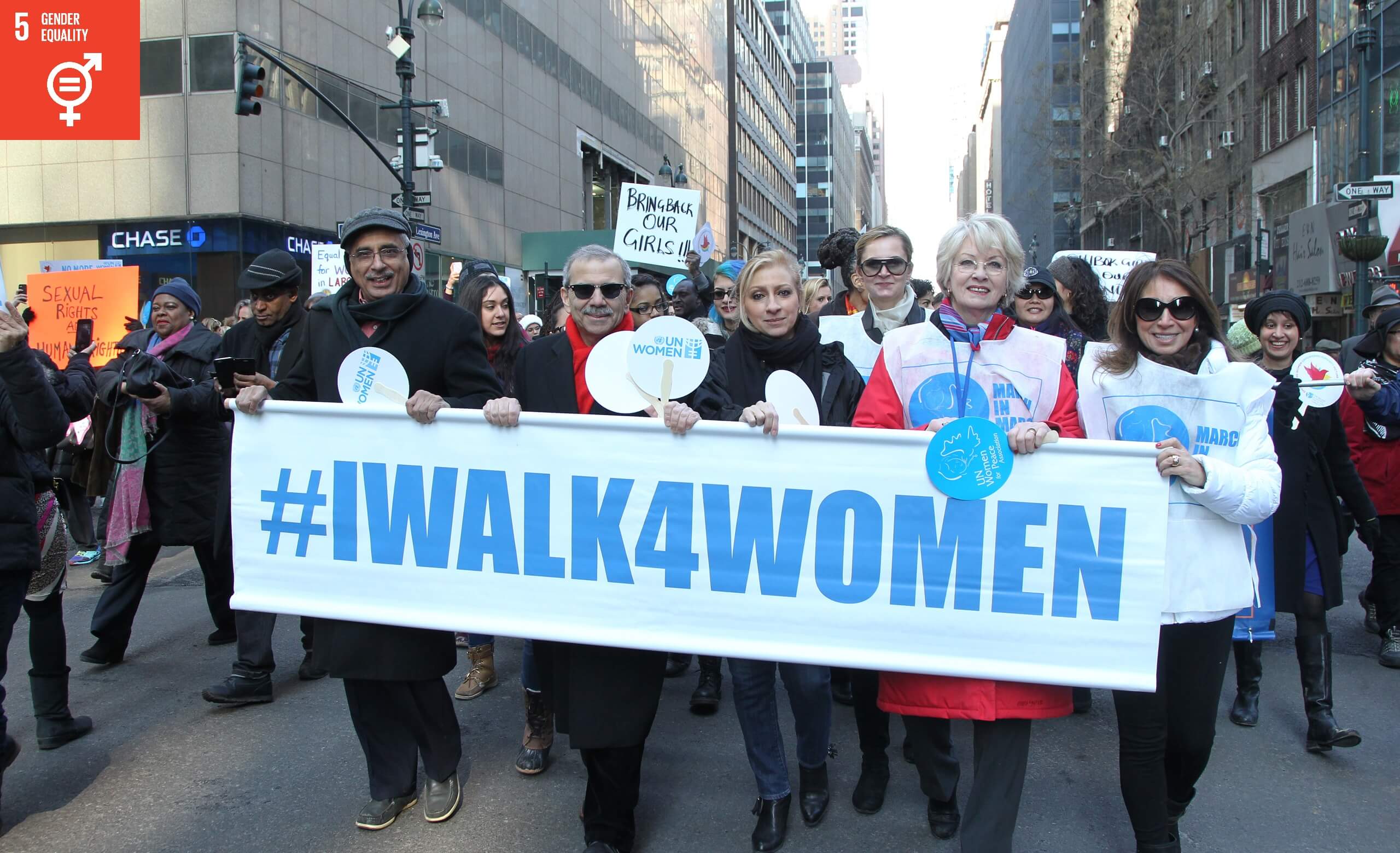
Goal 5: Gender equality
Ending all discrimination against women and girls is not only a basic human right, it’s crucial for sustainable future; it’s proven that empowering women and girls helps economic growth and development.
UNDP has made gender equality central to its work and we’ve seen remarkable progress in the past 20 years. There are more girls in school now compared to 15 years ago, and most regions have reached gender parity in primary education.
But although there are more women than ever in the labour market, there are still large inequalities in some regions, with women systematically denied the same work rights as men. Sexual violence and exploitation, the unequal division of unpaid care and domestic work, and discrimination in public office all remain huge barriers. Climate change and disasters continue to have a disproportionate effect on women and children, as do conflict and migration.
It is vital to give women equal rights land and property, sexual and reproductive health, and to technology and the internet. Today there are more women in public office than ever before, but encouraging more women leaders will help achieve greater gender equality.
Facts and figures
77 cents
Women earn only 77 cents for every dollar that men get for the same work.
1 in 3
35 percent of women have experienced physical and/or sexual violence.
13%
Women represent just 13 percent of agricultural landholders.
750 million
Almost 750 million women and girls alive today were married before their 18th birthday.
2 of 3
Two thirds of developing countries have achieved gender parity in primary education.
24%
Only 24 percent of national parliamentarians were women as of November 2018, a small increase from 11.3 percent in 1995.
View Goal Targets
- End all forms of discrimination against all women and girls everywhere
- Eliminate all forms of violence against all women and girls in the public and private spheres, including trafficking and sexual and other types of exploitation
- Eliminate all harmful practices, such as child, early and forced marriage and female genital mutilation
- Recognize and value unpaid care and domestic work through the provision of public services, infrastructure and social protection policies and the promotion of shared responsibility within the household and the family as nationally appropriate
- Ensure women’s full and effective participation and equal opportunities for leadership at all levels of decisionmaking in political, economic and public life
- Ensure universal access to sexual and reproductive health and reproductive rights as agreed in accordance with the Programme of Action of the International Conference on Population and Development and the Beijing Platform for Action and the outcome documents of their review conferences
- Undertake reforms to give women equal rights to economic resources, as well as access to ownership and control over land and other forms of property, financial services, inheritance and natural resources, in accordance with national laws
- Enhance the use of enabling technology, in particular information and communications technology, to promote the empowerment of women
- Adopt and strengthen sound policies and enforceable legislation for the promotion of gender equality and the empowerment of all women and girls at all levels
